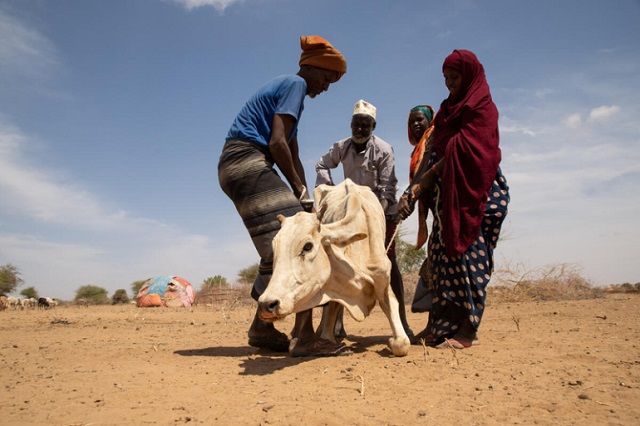
Nairobi, Kenya | Xinhua | The Horn of African region could experience depressed rains in the critical March to May season, dashing hopes of a respite from the escalating hunger crisis, the Intergovernmental Authority on Development (IGAD), an East African bloc, said Wednesday in its latest weather forecast report launched in Nairobi, the Kenyan capital.
According to the IGAD Climate Prediction and Applications Center (ICPAC), a large swathe of the Horn of Africa region is likely to receive subdued rains in the March to May season, casting a dark shadow on efforts to tackle food insecurity, malnutrition, water stress, and resource-based conflict.
Soipan Tuya, Kenya’s cabinet secretary in the Ministry of Environment, Climate Change and Forestry, said that inadequate rains bode ill for livelihoods, human health, and ecosystems’ balance in the region.
Tuya acknowledged that the Horn of Africa region is a climate change hotspot, necessitating robust investments in resilience projects tailor-made for vulnerable communities.
“As the region grapples with a climate crisis that has created a dire humanitarian situation, we need to enhance the resilience mechanism for our communities,” Tuya remarked.
She said that as Kenya prepares to host the Africa Climate Summit in September, there are concerted efforts at the regional level to strengthen coping mechanisms for communities on the frontline of extreme weather events.
According to the latest IGAD weather outlook for March to May, the arid parts of Ethiopia, Kenya, and Somalia, currently under the grip of acute drought, will experience below-average rains, jeopardizing efforts to restore the devastated livelihoods of nomads and subsistence farmers.
IGAD’s Executive Secretary Workneh Gebeyehu noted that investments in early warning and enhanced surveillance combined with sharing of best practices should inform future regional efforts to promote climate resilience.
Gebeyehu said that priority sectors for climate-proofing through smart investments, policy reforms, and enhanced collaboration includes agriculture, water, energy, health, forestry, and pastoralism.
In addition, Gebeyehu said that a shift to low-carbon development was imperative to enable the Horn of African communities to respond better to recurrent climatic shocks including droughts.
Guleid Artan, the director of ICPAC, said the likelihood of a sixth failed rainy season should serve as a wake-up call for Horn of African countries to scale up investments in climate-smart agriculture and tackle acute food insecurity that threatens peace and growth.
 The Independent Uganda: You get the Truth we Pay the Price
The Independent Uganda: You get the Truth we Pay the Price



